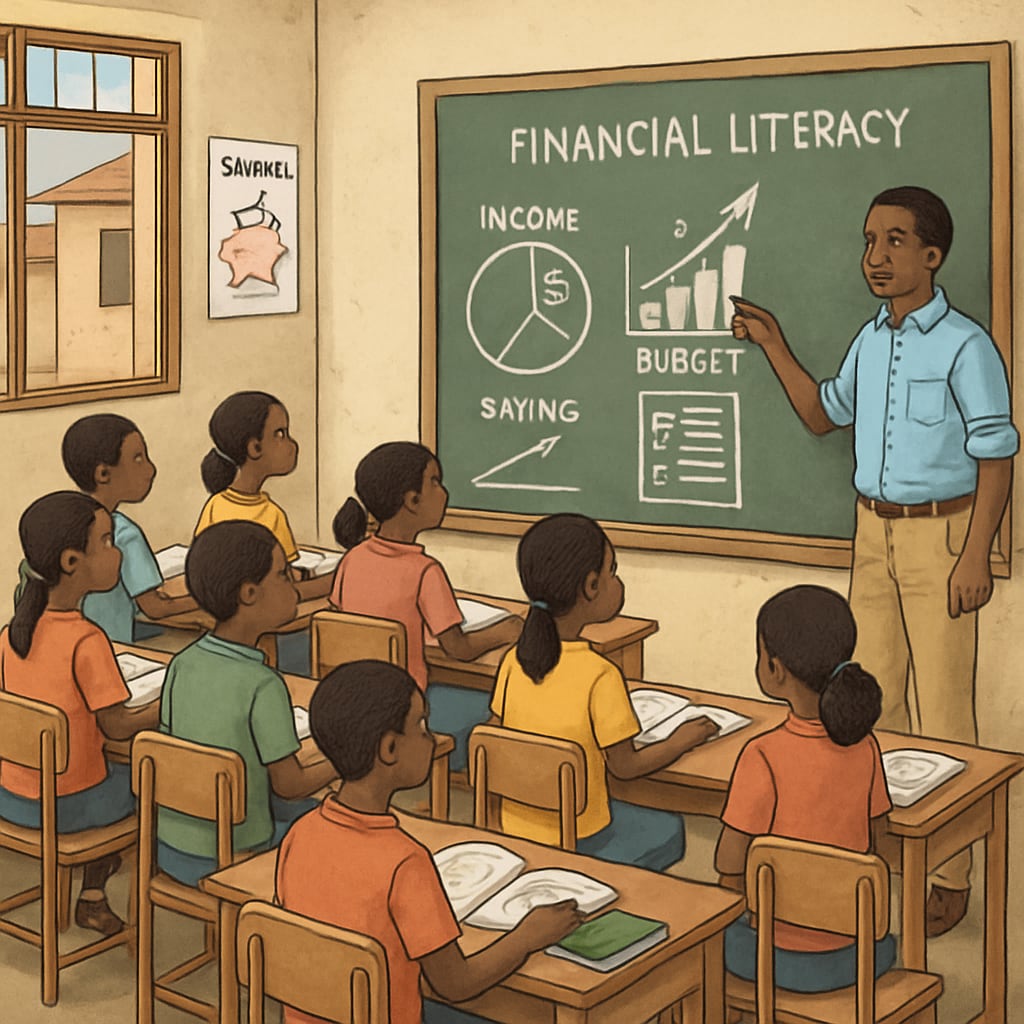In today’s interconnected global economy, the importance of financial literacy and career planning within the K-12 education system cannot be overstated. Developing countries, in particular, face significant challenges in equipping their students with the necessary skills to thrive in competitive job markets. By incorporating financial education and early career guidance into school curricula, these nations can bridge the gap between education and employment, contributing to both individual success and broader national development.
The Gap Between Education and Employment in Developing Countries
One of the primary challenges for students in developing nations is the disconnect between what is taught in schools and the skills required in the workforce. Many education systems prioritize rote learning over practical skills like financial literacy or career planning. As a result, students often graduate without the tools necessary to make informed career decisions or manage their personal finances effectively.
Moreover, limited exposure to global economic trends further exacerbates the issue. For example, students in rural or underprivileged areas often lack access to information about emerging industries or career opportunities beyond their immediate environment. This lack of awareness leaves them ill-prepared to compete in an increasingly globalized job market.

Why Financial Literacy and Career Planning Should Be Core Subjects
Integrating financial literacy and career planning into the K-12 curriculum can have transformative effects on students and society. Here are three key reasons why these subjects matter:
- Empowering Informed Decision-Making: Financial literacy equips students with the knowledge to manage personal finances, understand credit, and make investments. This foundation enables them to navigate adulthood with confidence.
- Reducing Socioeconomic Inequality: Early career planning can help students from disadvantaged backgrounds identify pathways to success, providing them with the tools to break the cycle of poverty.
- Fostering Economic Growth: A financially literate and career-oriented workforce contributes to a nation’s economic development by increasing productivity and innovation.
For example, countries like Finland and Singapore have successfully integrated financial education into their school systems, resulting in higher levels of financial competence among their populations. Developing countries can take inspiration from these models while tailoring their approaches to local needs.
Practical Steps for Implementation
To effectively incorporate financial literacy and career guidance into K-12 education, policymakers and educators can take the following steps:
- Curriculum Development: Design age-appropriate lessons that teach fundamental financial concepts, such as budgeting, saving, and investing, alongside career exploration activities.
- Teacher Training: Provide educators with the resources and training needed to teach these subjects confidently and effectively.
- Partnerships with Industry: Collaborate with local businesses and global organizations to offer internships, mentorship programs, and career fairs.
- Leveraging Technology: Use digital platforms to make financial and career education accessible to students in remote or underserved areas.

The Long-Term Benefits for National Development
When financial education and career planning are prioritized, the benefits extend far beyond individual students. A well-informed, financially literate population can drive national progress in several ways:
- Improved financial stability reduces reliance on government assistance programs, freeing up resources for infrastructure and development projects.
- An educated workforce attracts foreign investment, fostering economic growth and innovation.
- Better career alignment leads to higher job satisfaction and productivity, contributing to overall societal well-being.
For instance, a 2020 report by the Organisation for Economic Co-operation and Development (OECD) found that countries with strong financial education programs experienced faster economic growth and reduced income inequality. Developing nations can achieve similar outcomes by adopting such strategies.
In conclusion, bridging the gap between education and employment through financial literacy and career planning is not just a necessity but an opportunity for developing countries. By equipping students with these essential skills during their formative years, nations can empower the next generation to thrive in an increasingly complex and competitive world.
Readability guidance: This article uses concise sentences, clear transitions, and structured sections to enhance readability. Lists and examples help summarize key points, ensuring accessibility to a broad audience.


